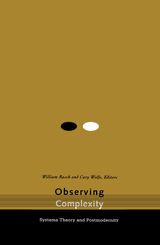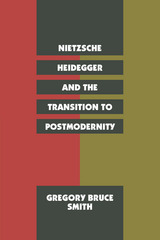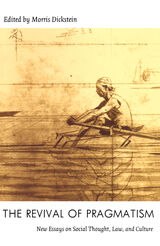The Social Theory of Practices: Tradition, Tacit Knowledge, and Presuppositions
University of Chicago Press, 1994
Cloth: 978-0-226-81737-8 | Paper: 978-0-226-81738-5
Library of Congress Classification B831.3.T87 1994
Dewey Decimal Classification 121
Cloth: 978-0-226-81737-8 | Paper: 978-0-226-81738-5
Library of Congress Classification B831.3.T87 1994
Dewey Decimal Classification 121
ABOUT THIS BOOK | TOC
ABOUT THIS BOOK
The concept of "practices"—whether of representation, of political or scientific traditions, or of organizational culture—is central to social theory. In this book, Stephen Turner presents the first analysis and critique of the idea of practice as it has developed in the various theoretical traditions of the social sciences and the humanities.
Understood broadly as a tacit understanding "shared" by a group, the concept of a practice has a fatal difficulty, Turner argues: there is no plausible mechanism by which a "practice" is transmitted or reproduced. The historical uses of the concept, from Durkheim to Kripke's version of Wittgenstein, provide examples of the contortions that thinkers have been forced into by this problem, and show the ultimate implausibility of the idea.
Turner's conclusion sketches a picture of what happens when we do without the notion of a shared practice, and how this bears on social theory and philosophy. It explains why social theory cannot get beyond the stage of constructing fuzzy analogies, and why the standard constructions of the contemporary philosophical problem of relativism depend upon this defective notion. This first book-length critique of practice theory is sure to stir discussion and controversy in a wide range of fields, from philosophy and science studies to sociology, anthropology, literary studies, and political and legal theory.
Understood broadly as a tacit understanding "shared" by a group, the concept of a practice has a fatal difficulty, Turner argues: there is no plausible mechanism by which a "practice" is transmitted or reproduced. The historical uses of the concept, from Durkheim to Kripke's version of Wittgenstein, provide examples of the contortions that thinkers have been forced into by this problem, and show the ultimate implausibility of the idea.
Turner's conclusion sketches a picture of what happens when we do without the notion of a shared practice, and how this bears on social theory and philosophy. It explains why social theory cannot get beyond the stage of constructing fuzzy analogies, and why the standard constructions of the contemporary philosophical problem of relativism depend upon this defective notion. This first book-length critique of practice theory is sure to stir discussion and controversy in a wide range of fields, from philosophy and science studies to sociology, anthropology, literary studies, and political and legal theory.
See other books on: Epistemology | Practices | Social Theory | Theory (Philosophy) | Tradition
See other titles from University of Chicago Press

























